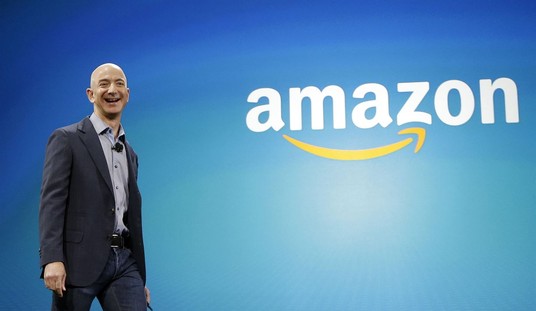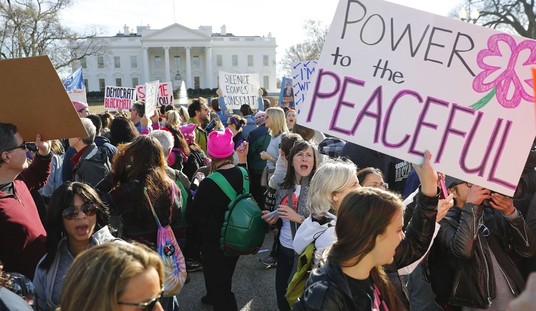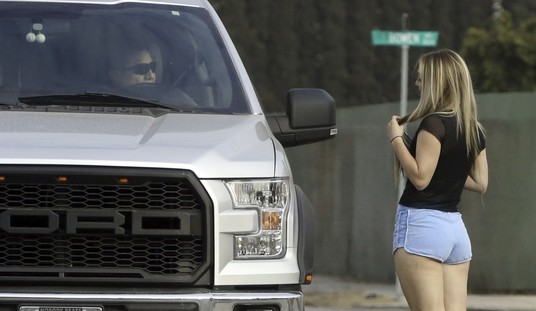The Associated Press published a bit of a think piece this weekend, examining how the current pandemic could potentially impact the outcome of the election in November. (Gee… ya think?) They spoke with a number of Republican analysts who see the usual topics of policy debate going out the window, with the race coming down to basically nothing other than a “referendum election” revolving around the novel coronavirus, its impact on the country and how well the President does or doesn’t steer us out of these stormy seas. Many of them claim to be getting nervous because of this. And in the opinion of at least one analyst, Joe Biden isn’t even a factor in the equation. You could stick any Democratic name you like on the other side of the ballot and everything would still come down to the other race: Donald J. Trump versus the coronavirus.
“It’s Donald J. Trump versus the coronavirus and the recovery,” said Scott Reed, the senior political strategist for the U.S. Chamber of Commerce. “Biden is a sideshow.”
For some Republicans, the prospect of an election that is almost wholly a referendum on Trump is unnerving. Though the president’s base remains loyal, a significant portion of GOP voters view him skeptically on a range of personal qualities. He pulled many of those voters to his side in the 2016 election by drawing an aggressive contrast with Democrat Hillary Clinton. He planned to do the same in 2020 with Biden, with the added tailwind of a surging American economy.
Now, that economy is crumbling around Trump. A staggering 30 million Americans have lost their jobs in the past six weeks as businesses have shuttered due to stay-at-home restrictions aimed at containing the pandemic. One of the president’s own economic advisers predicted nationwide unemployment could reach 20% by June.
Describing this as a “referendum election” is a bit of a misnomer. Let’s face it… in the end, every election is a referendum election. The two factors always in play are which candidate can create the most powerful cult of personality around themselves and what the most pressing issue of the day is. While many topics were up for debate in 2016, it’s hard to argue against the idea that the vast majority of voters just wanted to know who would do a better job of supercharging the stagnant recession recovery we had under Obama and bring the economy roaring back to life.
And there’s little question which candidate generated the most heat in terms of a cult of personality. The voters decided to take a chance on Donald Trump and, at least until the virus blew into town, they were reaping the rewards of that decision.
The funny thing is that even though we’ve had tens of millions of people suddenly going back on the unemployment lines and our GDP is bleeding out like it’s been dating Mike Tyson, Trump’s approval numbers have barely budged. In fact, at least according to the very latest Gallup survey and a few others, he’s still slowly edging upward. That’s not going to hold forever, though. It’s going to take too long to fully turn the economy back on and, at least absent a viable vaccine or antiviral drug therapy, we’ll be running the risk of a second wave of the pandemic before voters go to the polls in November.
As much as Democrats and their friends in the media may wish it were otherwise, the public is, by and large, not willing to blame the virus on Donald Trump. It wasn’t his fault that we were hit with this pandemic. But much like the captain of a ship that strikes an iceberg when he’s asleep in his cabin, President Trump will be judged on how we respond as a country. If the economy is still largely in the tank at the end of October and people are still dropping from COVID-19 in shocking numbers, the results of the “referendum” will be clear and I wouldn’t bet a plugged nickel on Trump’s chances of victory. (This applies even if Joe Biden can’t string together two coherent sentences.)
But if we manage to make it through the worst part of this wave and appear to be heading back toward the economy we enjoyed up until a couple of months ago, the President should be well situated. In that sense, the coming referendum is tied to both the coronavirus and the economy. And that’s because the two are now inextricably intertwined.








Join the conversation as a VIP Member